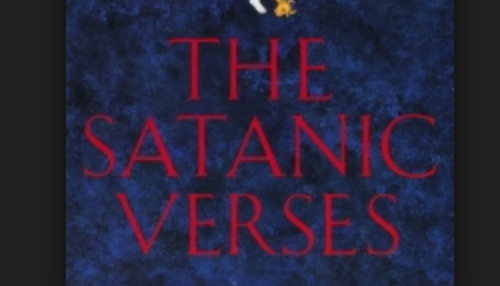The current edition of Index on Censorship magazine carries an interview with Jytte Klausen about her book The Cartoons that Shook the World: an intelligent look at the MoToons affair.
The editor of Index on Censorship wanted to publish these cartoons to illustrate the article.
Now, some of the most controversial cartoons of Mohammed could be read as offensive and racist stereotypes of Muslims. They could equally be read as critiques of jihadists who embrace and promote violence in the name of their religion. However, the bulk of the cartoons could in no way be regarded as racist, and provided an intelligent commentary on religious extremism, and on the fear that threats of religious violence engender. That, after all, was their primary purpose.
No matter. Months after these cartoons were published, two self-proclaimed Imams, one of whom had a history of violence, shopped the cartoons around the Middle East, adding a few extra pictures – one of a pig impersonating competition in France, which they falsely claimed was a depiction of Mohammed – where the campaign was adopted by the Muslim Brotherhood. The MoToon affair began.
Now, you would expect Index on Censorship to stand up for its Editor, Jo Glanville. You’d expect it to oppose censorship, and stand up for freedom of expression.
Its trustees did the opposite.
Here is Jonathan Dimbleby:
The board’s main concern was both for individual members of the Index staff and those who worked for the seven other organisations which share our Free Word premises in Farringdon Road, and who would have been equally on the receiving end of any attack aimed at Index. Nonetheless, a decision to prevent the re-publication of the cartoons (Index had decided against their publication in the magazine when the worldwide protests erupted in 2005) could not be taken lightly by those responsible for leading an organisation whose very essence is to protect and enhance freedom of expression in a world where the rich and powerful are busy eroding what ought to be a fundamental right in any civilised society.
For this reason I consulted the Index editor and established that, in her view, publication of the cartoons — though very desirable — was not crucial to an interview which did not focus on the cartoons themselves but on the process by which Yale decided against their publication.
Against that background, I consulted every colleague (including those who had not been able to attend the relevant board meeting). With the exception of two board members (one of whom was content to abide by the overwhelming majority view) my colleagues argued strongly against publication. To summarise our common view: re-publication of the cartoons would put at risk the security of our staff and others which, on balance, could not be justified on “freedom of expression” grounds alone. The idea that no one except a handful of like-minded anoraks would notice their appearance in Index seemed to us to be at best naïve.
That one dissenting trustee was Kenan Malik:
Index on Censorship has in recent years chronicled many instances of what we’ve called “pre-emptive censorship”: the willingness to censor material because of fear either of causing offence or of unleashing violence. From the Deutsche Oper cancelling a production of Idomeneo to Random House dropping The Jewel of Medina to Yale University Press’s refusal to publish the cartoons in Jytte Klausen’s book, the list is depressingly long. It is a development that, writing in the magazine last year, I described as “the internalisation of the fatwa”.
It is both disturbing and distressing to find Index on Censorship itself now on that list. I profoundly disagree not just with the decision to censor the cartoons but also with the reasons for doing so: that publication may have endangered staff and was “unnecessary” and, indeed, would have been “gratuitous”.
The safety of Index’s staff is, of course, hugely important. But where was the threat? Index certainly received none because no one knew that we were going to publish. Nor is there any reason to believe that there would have been danger had the cartoons not been pre-emptively censored. Islamic scholar Reza Aslan, describing Yale’s original decision as “idiotic”, pointed out that he has “written and lectured extensively about the incident and shown the cartoons without any negative reaction”. And, as Jo Glanville, editor of Index on Censorship, observed in an article in the Guardian earlier this year critical of Random House, pre-emptive censorship often creates a “self-fulfilling prophecy”. In assuming that an “offensive” work will invite violence one both entrenches the idea that the work is offensive and helps create a culture that makes violence more likely.
Here’s my question.
Why doesn’t the entire board of Index on Censorship resign in disgrace?


